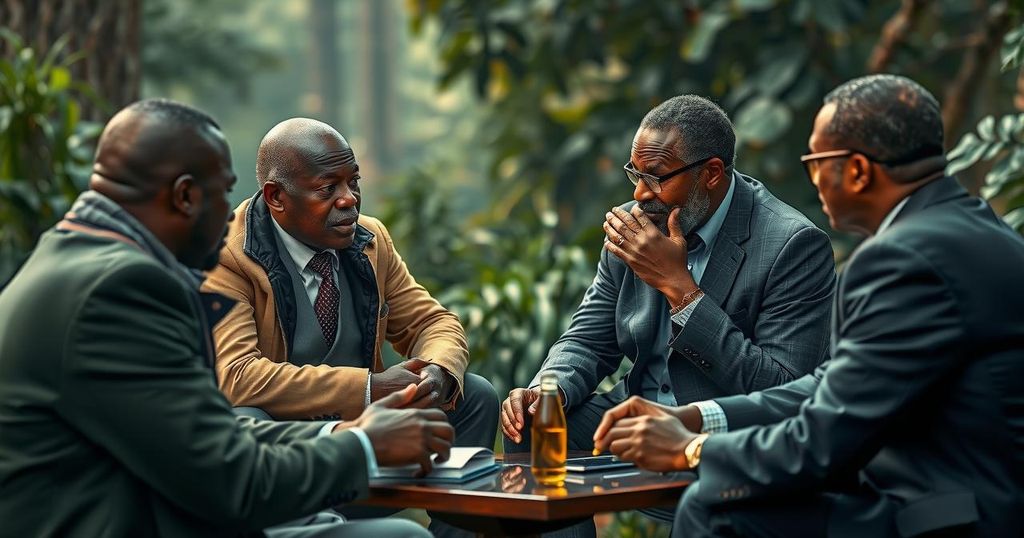The DRC’s Leadership Crisis: Echoes of Kwame Nkrumah’s Warnings

The Democratic Republic of Congo faces profound challenges rooted in historical leadership failures, ongoing ethnic tensions, and the complex relationship with Rwanda. Current leaders, such as Justice Minister Constant Mutamba, have been criticized for exacerbating divisions, drawing comparisons to the tumultuous legacies of past leaders like Patrice Lumumba and Mobutu Sese Seko, raising questions about the DRC’s path forward towards unity and stability.
The complex political landscape of the Democratic Republic of Congo (DRC) continues to rhyme with its tumultuous history, as articulated by prominent figures like PLO Lumumba and Kwame Nkrumah. This discourse reveals that the ongoing strife between the DRC and Rwanda is emblematic of deeper issues plaguing Congolese leadership and ethnic tensions. Current officials, such as Justice Minister Constant Mutamba, have exacerbated these divisions by openly inciting inmates at Munzenze Prison to act against those perceived as collaborators with Rwanda, particularly members of the M23 movement. Such remarks reflect a troubling pattern of scapegoating and ethnic discrimination fostered by the DRC’s leadership, which Nkrumah critiqued historically.
Furthermore, foreign relations, particularly with Rwanda, are fraught with tension, as evidenced by President Félix Antoine Tshisekedi’s declarations of war against Rwanda. The backdrop of this conflict involves a leadership crisis in the DRC, where figures like Lumumba once symbolized hope for unity and independence. Nkrumah disdained the post-Lumumba leadership as treacherous, suggesting that contemporary governance mirrors past failures. Today, the DRC seems to oscillate between nostalgia for past leaders, such as Mobutu Sese Seko, who, despite his flaws, managed a rhetoric of unity, and a current regime that appears to deepen internal divides. This yearning for unity amidst chaos illuminates the challenges facing the DRC today and begs the question of what it will take for the nation to heal from its historical grievances.
The Democratic Republic of Congo has long been entangled in a web of political instability and ethnic conflict. The historical assassination of Prime Minister Patrice Lumumba in 1961 marked the beginning of a prolonged period of tyranny and exploitation under figures considered treasonous leaders by thinkers like Kwame Nkrumah. Today, the DRC’s ongoing issues, including its fraught relations with Rwanda and ethnic tensions, perpetuate a cycle of violence and division. The current leadership’s inclination to scapegoat certain groups rather than foster national healing has drawn criticism and despair from various stakeholders, revealing a complex narrative of governance and national identity.
In conclusion, the Democratic Republic of Congo’s struggles epitomize a broader narrative of mismanagement, ethnic strife, and a failure of leadership. The contrasting views on past leaders like Mobutu versus the current regime under Tshisekedi underscore a longing for unification amidst the fragmentation that characterizes today’s sociopolitical environment. Ultimately, the challenges noted by Nkrumah regarding leadership rooted in ethical principles remain unresolved, suggesting that the path forward is fraught with difficulty unless genuine reconciliation and governance reform are pursued.
Original Source: www.newtimes.co.rw







